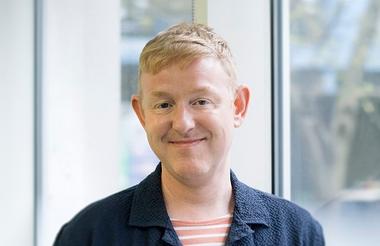Q&A with Charity Awards judging panel chair Chris Sherwood
Judging panel chair Chris Sherwood spoke to the Civil Society Podcast about all things Charity Awards

Chris Sherwood, chair of the Charity Awards judges
Why should charities apply?
Well, obviously, you get to dress up and come to a fantastic event in London for the Charity Awards dinner, and it is a really great event as well. So, definitely, that’s a benefit.
But on a serious note, it is that profile that you get through the Charity Awards, and the content that is produced by Civil Society to showcase your work. From talking to previous winners before, it is that recognition of the good work you’re doing. And it does have that benefit for staff morale, and it does have that benefit in demonstrating to your supporters that accreditation of the work that you’re doing, the recognition by the Charity Awards.
And for me, it is that recognition is from your peers. This is charities making decisions on who the winners are of other charities. Our Charity Award judges are all from the sector or work with the sector, and have got that commitment and passion for the sector as well. So that recognition, I think, is really important.
It’s also that fundraising benefit, and it’s demonstrating to supporters and to your internal audiences the difference that you’re making as well. And you get to go to a really nice bash in central London, which is quite fun.
What should charities think about when they’re trying to apply?
That evidence of impact, value for money, helping us to understand what’s innovative about your project as well, to help it stand out from others.
Thinking through sustainability, particularly when the project has had one off funding – how are you going to sustain that beyond the life of that funding as well? Really good projects that come through show that thinking about how you will sustain it. And there are lots of different methods to do that, and helping us to understand that replicability and scalability.
I think the other thing, because I’ve read a lot of applications, is that you clearly articulate what it is you did. Some projects don’t make the cut into the shortlist for different categories because it’s quite hard to unpick the model that you’re working on. You need to tell us about how it is and what it does, but actually what it is as well.
Spend a bit of time creating that narrative around it. That’s helpful for us as judges to be able to understand because you will have judges that won’t necessarily know your organisation or know the bit of the sector that you work in as well. So, help us to understand that. All our judges are fantastic but helping them to get a sense of what you did and why it made a difference and what was innovative about it is really important. So, taking a bit of time on that application is important.
Another really important thing is really drawing out how your project meets the needs of the people who are benefiting and the insights you gather from that. That’s another important part of the process as well. I’ve spent quite a lot of time in my career in the disability sector. And you know that “nothing for us without us” phrase is drilled into me and that’s really important part of this process as well.
We want everyone to do a good application, but we can only assess what is in the application. So, if you don’t tell us about the outcomes, or you don’t tell us what the problem you’ve been trying to solve is, or you don’t tell us about value for money, it’s really hard for us to assess. Those are the really hard ones, because you want to go “oh, it’s really great”, but if only you put this in, we would be able to score it and be able to take it through.
What doesn’t matter?
Size of charity. We’ve had big charities like SeeAbility and tiny charities like Landworks winning the overall award for excellence. But you can see that in each of the categories as well.
The other thing is charities from different parts of the sector. We’ve had, in previous years, a charity from the culture and heritage sector winning the overall award. Other overall winners have been service delivery charities and campaigning organisations.
Another point is location. This is not a London-centric set of awards. Our judges come from across the country. Awards have gone to charities from across the four nations, and that’s really important part of the Charity Awards as well.
The submissions don’t need to be about big, expensive things. Equally, we’ve given awards to low-cost things and everything in between as well. What really matters for me as one judge around the table is really good projects that respond to a well articulated need or problem and show the difference that you made and how you’re sustaining that. It’s that telling that story about the difference you make.
I hope we get lots of applications this year. I’ve got a whole weekend lined up in April to start reading them.
